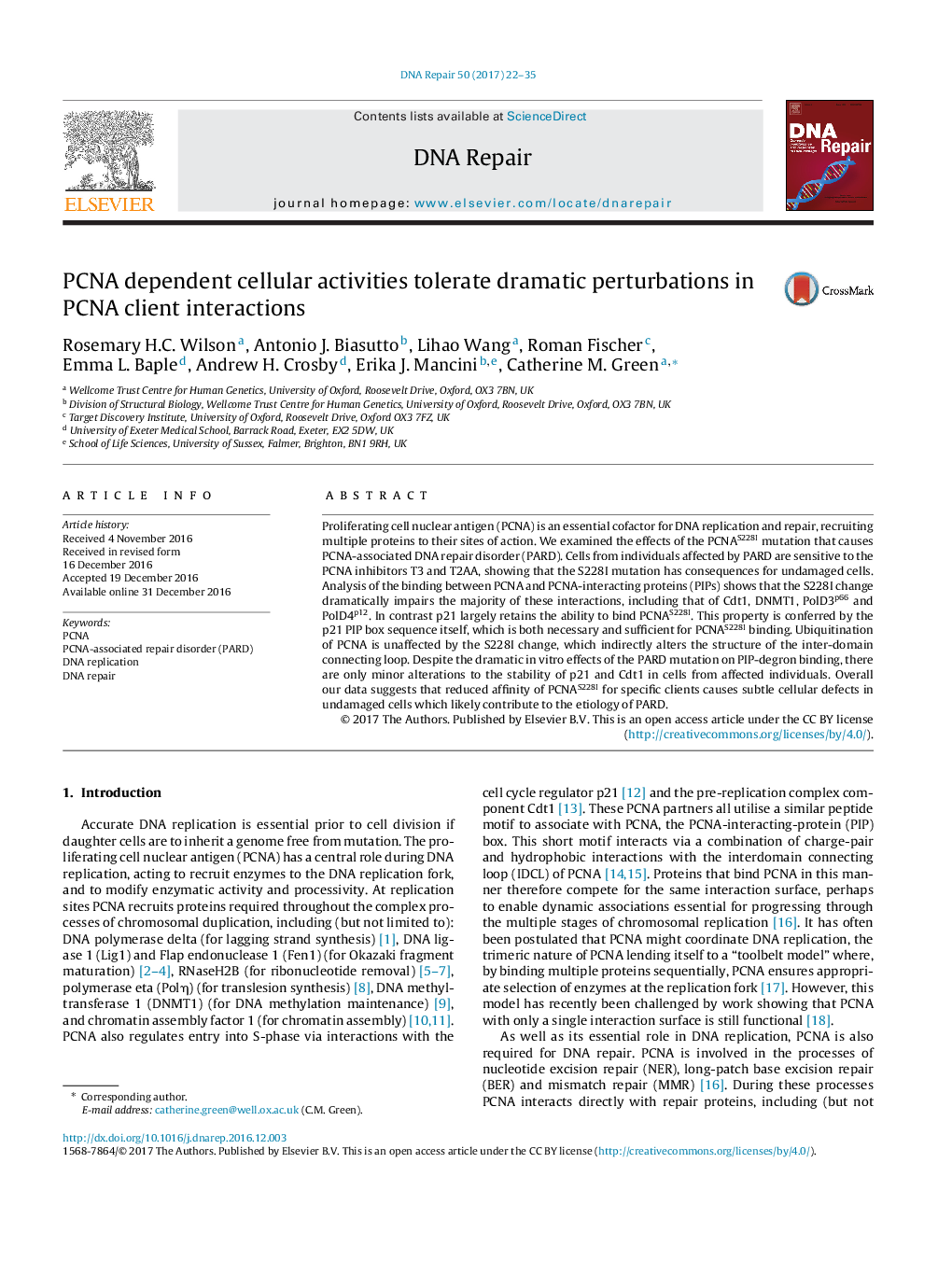| کد مقاله | کد نشریه | سال انتشار | مقاله انگلیسی | نسخه تمام متن |
|---|---|---|---|---|
| 5511011 | 1539378 | 2017 | 14 صفحه PDF | دانلود رایگان |

- We assess the cellular effects of the mutation that causes PARD (PCNAS228I).
- Cells from affected individuals are sensitive to T2AA and T3.
- PCNAS228I impairs interactions between PCNA and Cdt1, DNMT1, PolD3 and PolD4.
- The PIP-box of p21 retains binding to PCNAS228I.
- PCNA-dependent degradation and the cell cycle are only subtly altered by PCNAS228I.
Proliferating cell nuclear antigen (PCNA) is an essential cofactor for DNA replication and repair, recruiting multiple proteins to their sites of action. We examined the effects of the PCNAS228I mutation that causes PCNA-associated DNA repair disorder (PARD). Cells from individuals affected by PARD are sensitive to the PCNA inhibitors T3 and T2AA, showing that the S228I mutation has consequences for undamaged cells. Analysis of the binding between PCNA and PCNA-interacting proteins (PIPs) shows that the S228I change dramatically impairs the majority of these interactions, including that of Cdt1, DNMT1, PolD3p66 and PolD4p12. In contrast p21 largely retains the ability to bind PCNAS228I. This property is conferred by the p21 PIP box sequence itself, which is both necessary and sufficient for PCNAS228I binding. Ubiquitination of PCNA is unaffected by the S228I change, which indirectly alters the structure of the inter-domain connecting loop. Despite the dramatic in vitro effects of the PARD mutation on PIP-degron binding, there are only minor alterations to the stability of p21 and Cdt1 in cells from affected individuals. Overall our data suggests that reduced affinity of PCNAS228I for specific clients causes subtle cellular defects in undamaged cells which likely contribute to the etiology of PARD.
Journal: DNA Repair - Volume 50, February 2017, Pages 22-35